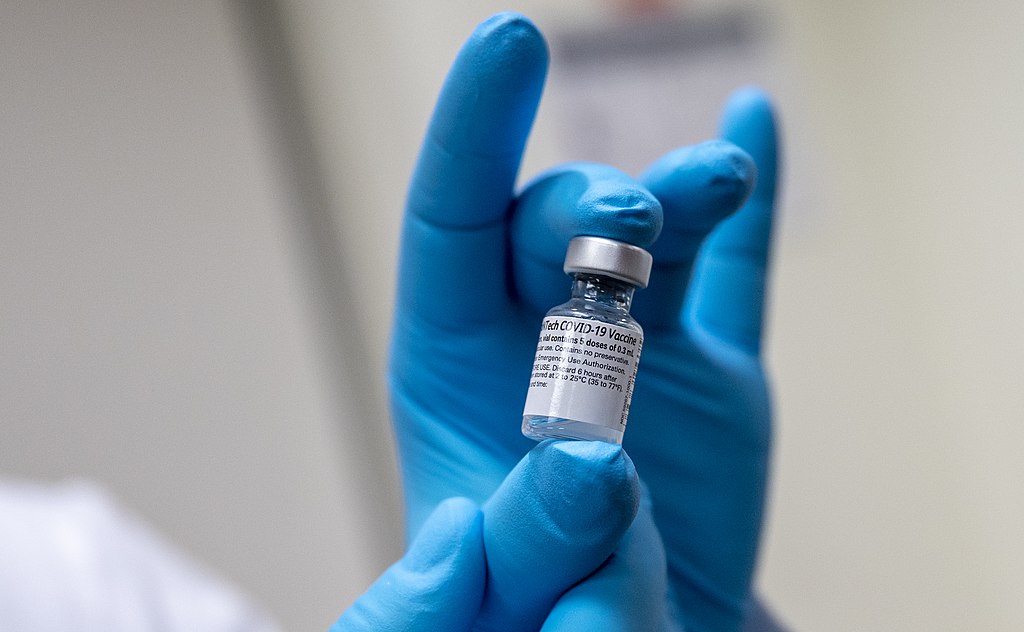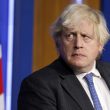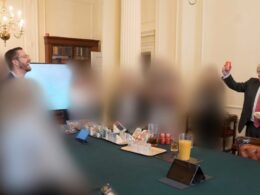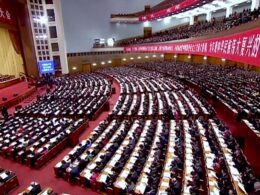By Cathal Curran
In the month since the discovery of the Omicron variant, it has already spread across the globe, brought about the return of harsh restrictions on the lives of millions, and made shareholders in vaccine manufacturers billions. In the first week after the strain’s discovery, the eight top Pfizer and Moderna shareholders made over $10 billion as their stock holdings soared, on top of the 100s of billions they were already set to make from vaccine production.
Vaccine apartheid
The monopolisation of these life-saving vaccines allows Pfizer and Moderna to control all of the production and sell to the highest bidder, leaving poorer countries with minimal, if any, doses. Just 10% of the population in Africa is fully vaccinated, compared to averages in Europe, Asia and North America of around 65%.
Most UN member states have voted in favour of waivers on Covid vaccine patents and for these companies to share their “recipes” so that vaccine production can be done by states themselves. The facilities required to do so exist. The World Health Organization has countered the racist narrative that these countries don’t have the capabilities by backing a factory and scientists in South Africa to develop and produce their own MRNA vaccines. However, it’s acknowledged that many years and lives could be saved if they didn’t also have to create their own recipe.
Until the world is protected from COVID everyone is at risk and we will see the emergence of new variant after new variant. The world will be learning the alphabets of many more languages unless this profiteering is stopped.
Intellectual property
Most major capitalist governments have resisted this call so far, as they see Intellectual Property as fundamentally private property, that is, absolutely crucial to the existence of capitalism. In this instance, the IP owners (Pfizer and Moderna) acquire knowledge (life-saving MRNA vaccines) through some means (Moderna – 100% research by the public sector, Pfizer – also a huge amount of money given to it by the public sector) and then charge what they want for it, denying access to anyone unable to pay. This is said to be necessary to provide ‘incentive’ and ‘to make sure we have someone to develop the next vaccine’, despite the fact that humans have always developed medicines and new technologies, long before such laws or capitalism existed.
Like all products, knowledge products are created by workers. However, under capitalism, the workers don’t own what they produce, rather this is owned by the capitalist who rents out the use of this knowledge for a hefty price. IP laws mean that the method of production, the process in which the product is created, is also owned exclusively by the capitalist, depriving other people of the opportunity to make use of it. Therefore, these laws inhibit, rather than incentivize, progress, as they prevent experimentation and collaboration, and result in a winner-takes-all system where the first person to claim a patent gets everything and anyone who contributed to its creation, along with the rest of society, gets nothing.
Capitalist governments fear the lifting of patents in this situation would lead to a “no going back” situation, where questions are asked of them as to why we have IP laws restricting production of other life-saving medicines, or possible new technologies that may assist in fighting climate change, etc. Large corporations may no longer be free to hoard these new advancements in the service of making more profit, but rather humanity as a whole can benefit from them instead.
Democratic public ownership
The real “vaccine bonus” is the profit these private companies make at our expense. Through hoarding the IP so they alone can manufacture and sell the vaccines, Pfizer and Moderna do what companies in a capitalist economy must do – put profits above all else. It is up to the working-class and poor people across the world to force governments to end this monopoly. This is the only way to achieve the global vaccine equity we desperately need.
The lifting of IP laws for Covid vaccines is an immediate requirement, so that factories and countries around the world can start producing their own vaccines and end this pandemic once and for all. Moreover, these global pharmaceutical companies have to be taken into democratic public ownership so that all progress in medical science is shared around the world to save and improve lives.
If Pfizer and Moderna were publicly owned and democratically run by their workers – the people who actually created the vaccine – they would be far more likely to share their work so they could live in a safe, healthy community, over wealthy shareholders who are only concerned with their bottom line, reminding us of the Karl Marx quote that:
“It is generally the most worthless and miserable sort of money capitalists who draw the greatest profit out of all new developments of the universal labour of the human spirit and their social application through combined labour.”












